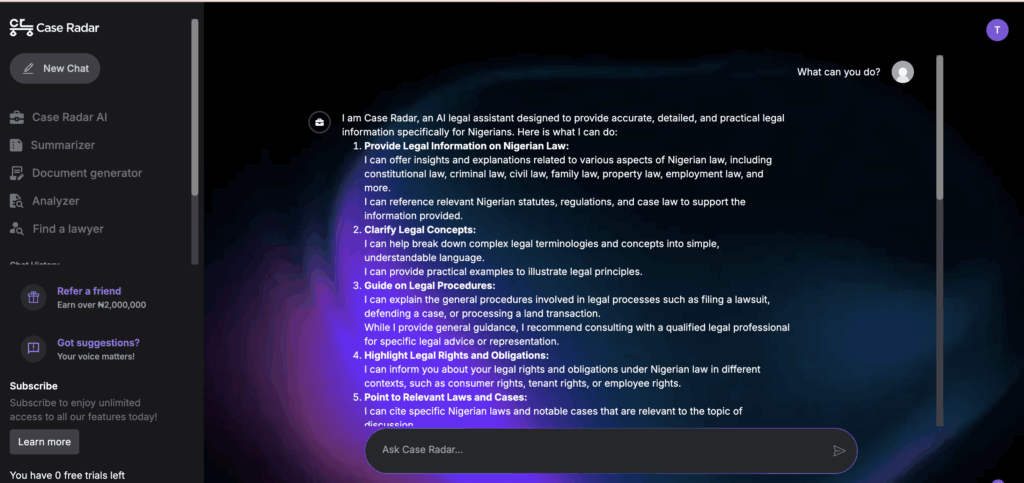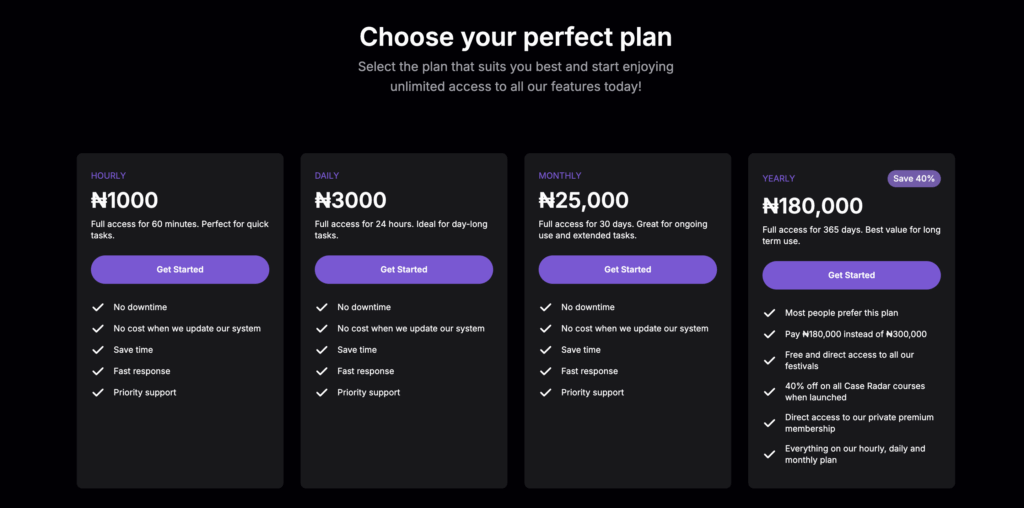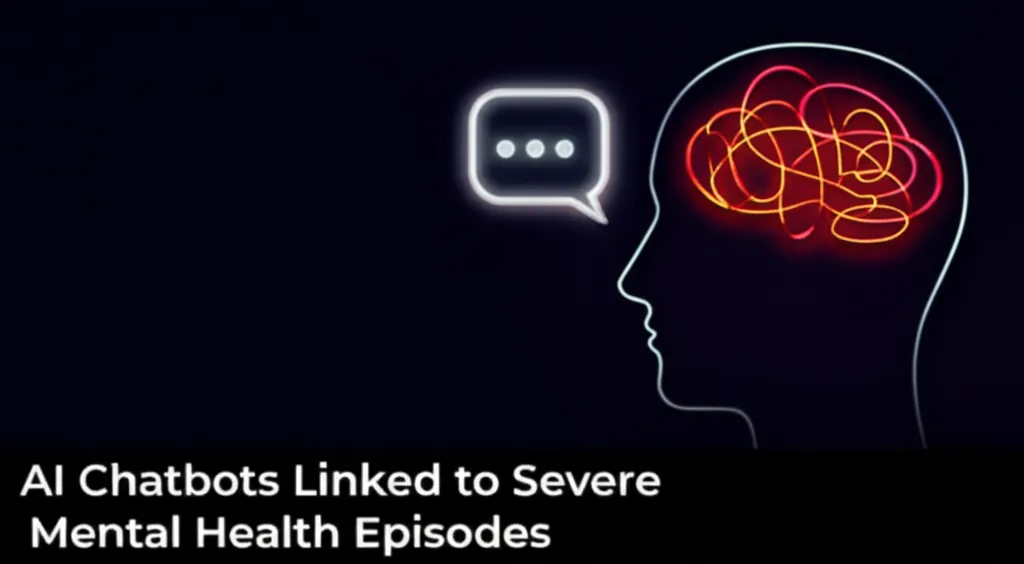Developer Offer
Try ImaginePro API with 50 Free Credits
Build and ship AI-powered visuals with Midjourney, Flux, and more — free credits refresh every month.
Nigerian AI Startup Disrupts Legal Tech With Offline Data
 Agbo Obinnaya and Victory Nnaji, founders of Case Radar
Agbo Obinnaya and Victory Nnaji, founders of Case Radar
In a world where building a competitive AI product seems to require immense funding to challenge giants like OpenAI and Google, two Nigerian founders have carved out a unique niche. Agbo Obinnaya and his co-founder, Victory Nnaji, believe their platform, Case Radar, is a game-changer for the Nigerian legal landscape.
Launched in September 2024, the AI platform has already attracted over 1,400 users by offering legal guidance and connecting people with lawyers. While acknowledging that ChatGPT can offer legal advice, the founders of Case Radar point out a critical limitation: its knowledge is confined to what's available online. Their platform, however, is powered by a proprietary dataset of Nigerian court documents, most of which have never been on the internet.
The Hyper Local AI Advantage
Case Radar's competitive edge is built on three pillars: a sharp focus on Nigerian law, local relevance through hard-to-access data, and a commitment to accuracy. A major problem with many large language models is their tendency to "hallucinate" or invent answers when they don't know something. Case Radar tackles this head-on.
"We’ve trained it to just say ‘I don’t know’ when it doesn’t know something," Obinnaya stated.
This refusal to fabricate information provides a level of reliability crucial for legal matters. While ChatGPT is a versatile tool with a massive global user base, according to data on its usage, Obinnaya insists that for specific Nigerian legal information, Case Radar is superior because its foundation is built on thousands of court documents that simply don't exist online.
From Analogue Files to Digital Insights
The most challenging part of the project was digitizing the vast trove of physical documents. The scale of the task was immense and required significant personal sacrifice.
"The data was so huge that Victory had to move from Enugu to Abuja because it was too difficult to send," Obinnaya explained. Victory Nnaji was responsible for writing the code that extracted, cleaned, and processed all this analogue information into a format the AI model could learn from.
Building a Community and Solving a Dual Problem
With 1,400 users in less than a year, Case Radar's growth is a testament to a smart strategy. Obinnaya leveraged his background in Web3 marketing to foster engagement through community building.
"Instead of just building a platform, we also decided to build communities," he said. His experience as a lawyer also provided key insights into the market's needs. He observed that many Nigerians fear the law simply because they don't understand it, a finding confirmed by a survey he conducted. At the same time, the legal profession faces a jobs crisis, with over 5,000 new lawyers called to the bar annually.
Case Radar addresses both issues by making legal information accessible to the public while creating a channel for lawyers to find clients. The platform is intuitive, allowing users to sign up and interact with a chatbot that offers features like document summarization, analysis, and a tool to find a lawyer.

Monetization and The Road Ahead

Case Radar's primary business model is subscriptions. After three free trials, users can choose from various plans: ₦1,000 ($0.67) per hour, ₦3,000 ($2) per day, ₦25,000 ($17) per month, or ₦180,000 ($120) per year. Lawyers pay a ₦30,000 ($20) annual fee to be listed on the platform and connected with potential clients. Since its launch, the company has generated a modest ₦500,000 (about $330).
The platform's core value lies in the convenience of accessing its unique dataset and its user-friendly interface. Although Case Radar is built on GPT infrastructure—meaning others could theoretically replicate it if they acquired the same data—the team has built a strong brand and a ten-person team focused on infrastructure and marketing.
To remain relevant in the fast-paced world of AI, continuous innovation is key. The journey ahead is challenging, especially with funding being a major hurdle—the startup is currently financed by the founders and their families. However, Obinnaya is determined.
"The plan is to launch our mobile app, do extensive marketing, and build a massive community. We will learn in the process and keep improving," he said.
Compare Plans & Pricing
Find the plan that matches your workload and unlock full access to ImaginePro.
| Plan | Price | Highlights |
|---|---|---|
| Standard | $8 / month |
|
| Premium | $20 / month |
|
Need custom terms? Talk to us to tailor credits, rate limits, or deployment options.
View All Pricing Details

